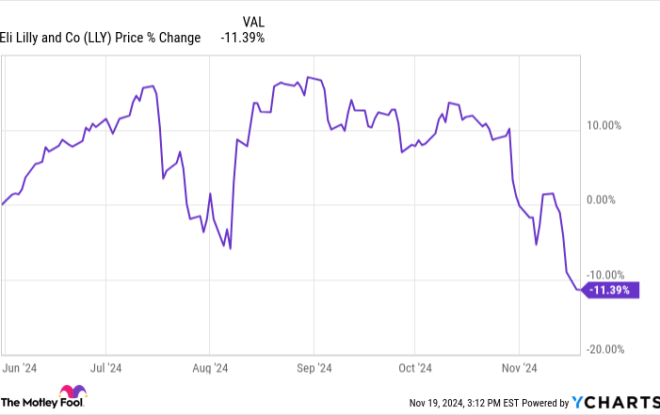EXCLUSIVE: How To Raise Capital In Cannabis – A Guide To Debt And Equity For Avoiding Pitfalls That Sink Most Startups
When your cannabis business needs cash, where do you turn? Should you give up some control for investors or borrow money and risk debt? At the Benzinga Cannabis Capital Conference in Chicago, experts tackled these tough decisions. The panel, “Cannabis Financing 101,” offered practical advice for businesses at every stage.
- Get Benzinga’s exclusive analysis and the top news about the cannabis industry and markets daily in your inbox for free. Subscribe to our newsletter here. You can’t afford to miss out if you’re serious about the business.
Sources Of Funding For Cannabis Startups
Moderated by Marc Claybon, principal-tax at Crowe, the session featured Tayyaba Khan, partner at Cassels; Adam Stettner, CEO of FundCanna; Anthony Coniglio. CEO of NewLake Capital Partners NLCP and Charles Alovisetti, partner at Vicente LLP. They shared essential tips on navigating debt, equity and liquidity in today’s cannabis market.
“For newer companies, friends and family funding is often the only option,” Alovisetti said, pointing out that more established businesses can tap into broader sources such as state grants, social equity programs, or hard money lenders. However, he added, “Not every business is a good candidate for debt. You have to consider cash flow and collateral.”
While startups may struggle to secure traditional financing, larger, more established cannabis operators may have access to sale-leaseback agreements or other forms of asset-backed lending.
Equity Vs. Debt: What Works For Your Business?
Khan detailed the pros and cons of equity versus debt financing. Equity financing offers flexibility, as businesses do not have to repay funds immediately, but it comes at the cost of ownership. “You’re giving up a piece of your company, and investors will likely want a say in decision-making,” she explained.
Debt, on the other hand, allows companies to retain ownership but comes with repayment obligations. “Debt is cheaper capital than equity,” Khan said but warned that companies need to carefully manage their cash flow to meet repayment schedules. Interest payments may offer tax deductions, but missing debt payments can lead to default or loss of assets.
Read Also: Budtenders Letting You Down? Meet The Weed Bot That Actually Knows What You Want
Debt Can’t Wait: Tackling The AR Dilemma
A recurring challenge in the cannabis industry is the management of accounts receivable (AR). Stettner highlighted this issue. “The one thing that we’re universally dealing with is delinquent AR. It doesn’t matter where you are in the supply chain—it’s an issue.”
The mismatch between payment terms and revenue cycles exacerbates the problem. “It’s very hard as a purchaser to make payment on goods when you don’t have revenue from the goods you’ve purchased,” Stettner said. He urged businesses to ensure that their debt repayment schedules align with revenue cycles. “Debt is not a four-letter word,” he joked, noting that even companies like Apple and Google use leverage for growth. “It’s about doing it right.”
Real Estate: Lease, Own Or Sale-Leaseback?
Real estate is a critical issue for cannabis businesses and the complexities are magnified by the disconnect between federal and state laws. Coniglio pointed out that most landlords with federally-backed mortgages are prohibited from leasing to cannabis companies, creating a significant barrier. “This forces many operators to buy properties outright, tying up capital that could be used elsewhere,” he said.
Cannabis businesses have several options when dealing with real estate challenges.
Some choose to buy and then finance their property through banks, though this often comes at a “haircut to the non-cannabis value,” as Coniglio described it. Others turn to specialized lending or sale-leaseback agreements.
In a sale-leaseback, companies sell their property to a real estate investment trust (REIT) or another buyer, then lease it back under a long-term agreement. This allows them to unlock the capital tied up in real estate while continuing operations.
Coniglio explained that each option has its pros and cons, and businesses need to assess their long-term strategies. “Real estate is a core part of any cannabis business, and companies need to explore all their options carefully,” he concluded.
Read Also: It’s Your Constitutional Right: How You Can Break The Senate’s Block On Cannabis Legalization
Cash Flow: The Lifeblood of Cannabis Finance
Throughout the discussion, the panelists repeatedly stressed the importance of cash flow. “Cash flow is the most critical part of this whole conversation,” Coniglio said. Whether pursuing debt or equity financing, investors will always examine a company’s cash flow to determine its ability to repay loans or generate returns.
Stettner agreed, warning that businesses must focus on realistic cash flow projections. “Nobody is going to lend you money if they don’t see how you’ll pay it back,” he said.
Read Next: EXCLUSIVE: Inside The Amazon Of Weed, Helping 400 Cannabis Brands Save And Grow In Regulatory Maze
© 2024 Benzinga.com. Benzinga does not provide investment advice. All rights reserved.





Leave a Reply